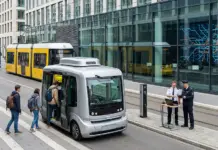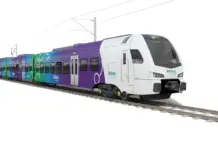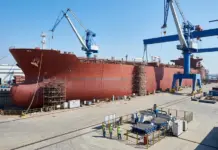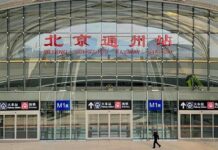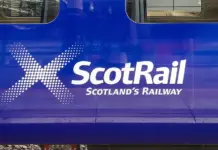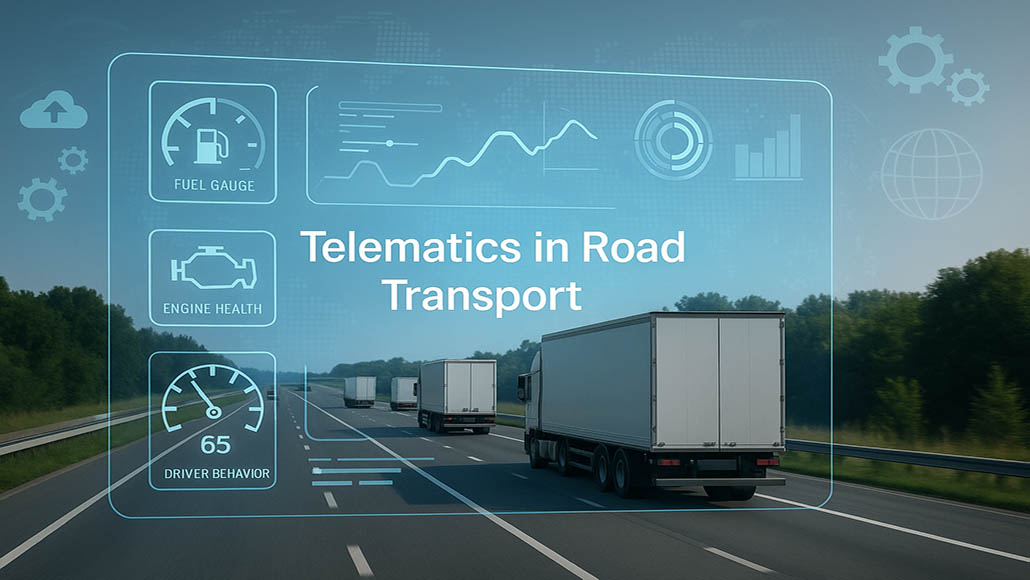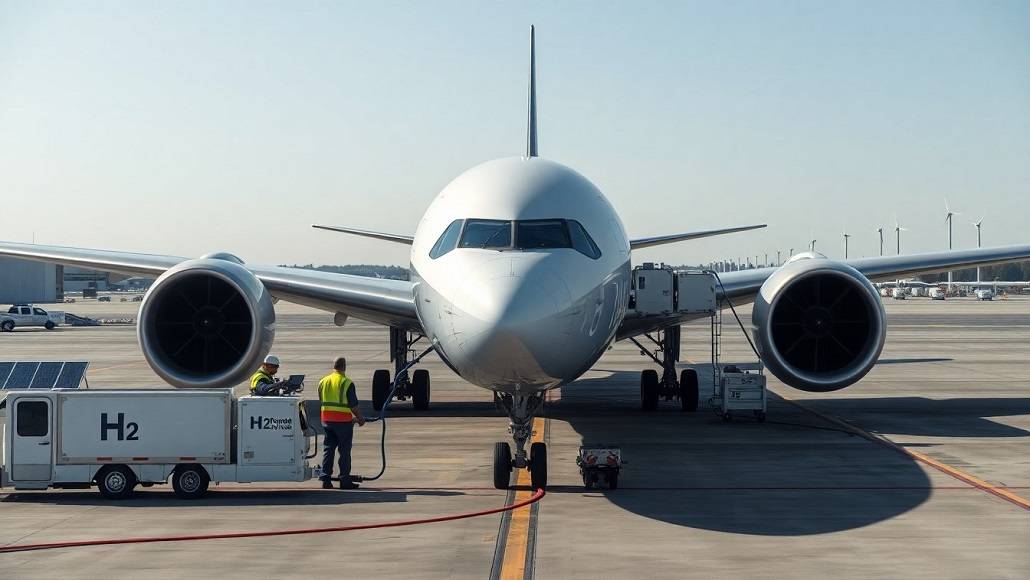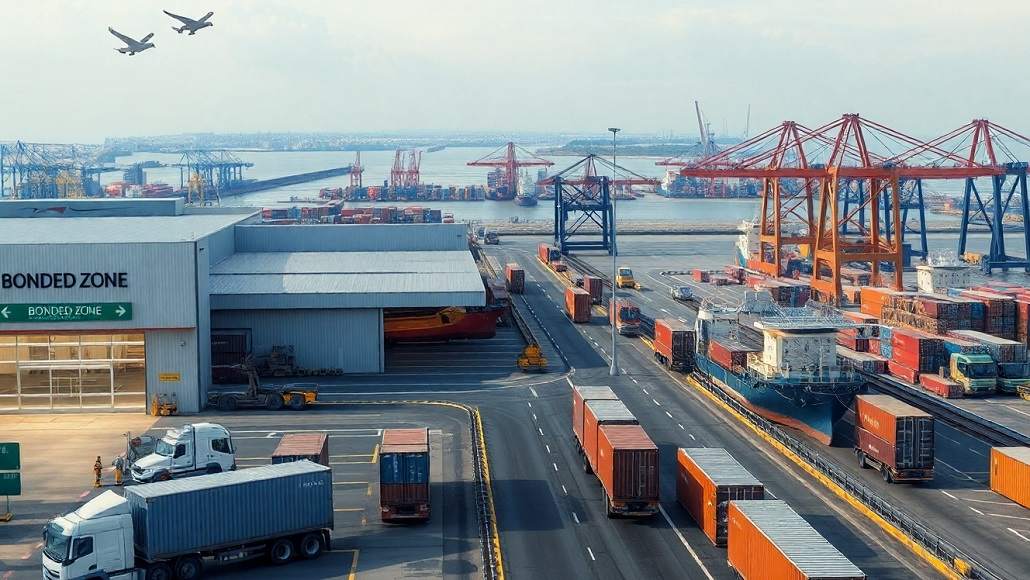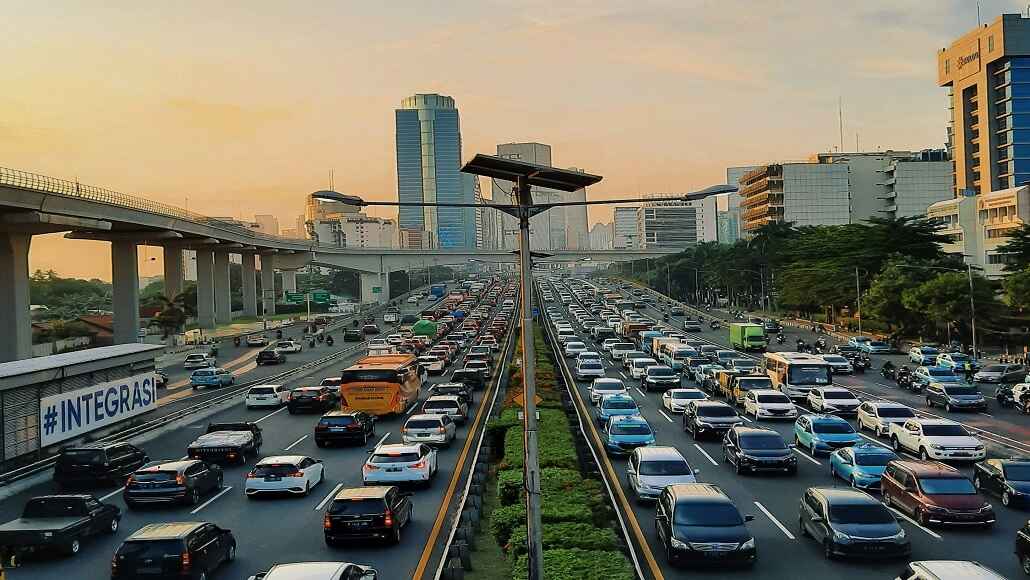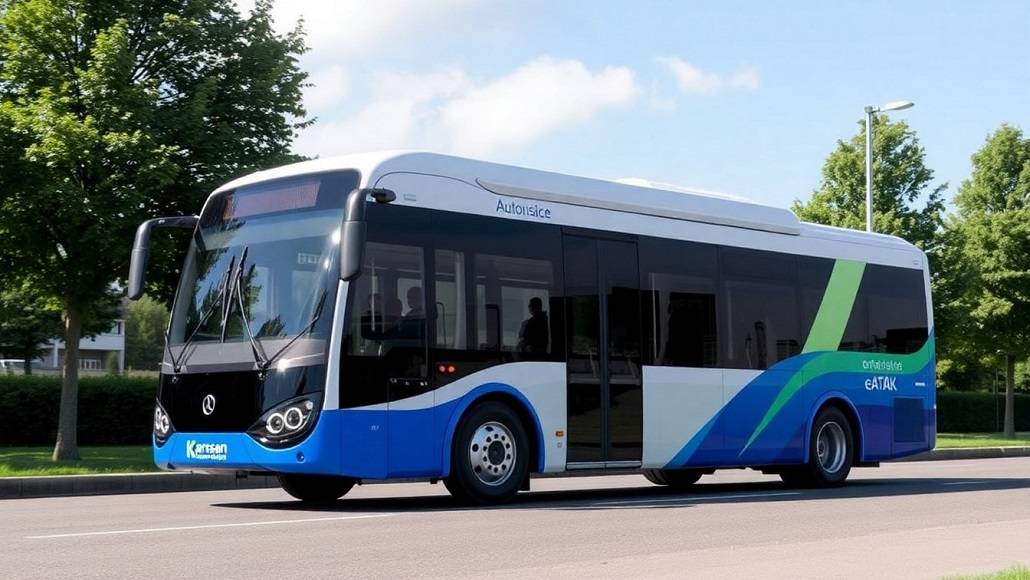Karsan, which has become a global brand in public transportation, has achieved a new success by bringing its autonomous driving technology to the centre of Europe. Karsan Autonomous e-ATAK has succeeded in becoming the first autonomous public transport bus to receive approval from KBA (Kraftfahrt Bundesamt – Federal Motor Transport Authority), Germany’s official institution responsible for road traffic regulations. With this approval, the Level-4 automated bus Karsan Autonomous e-ATAK, developed in cooperation with technology partner ADASTEC, became the first autonomous bus to operate on public roads in Hannover, Germany, as part of the Albus Project. This step represents a first for Turkish engineering in a market with the strictest regulations in Europe.
Commenting on the subject, Karsan CEO Okan Baş said: “As the pioneering brand leading the transformation of autonomous public transport, we are moving forward with a structure that not only adapts but also sets standards in this field. Entering the field with Autonomous e-ATAK in one of the markets with the strictest regulations, such as Germany, demonstrates not only our technical competence but also our visionary approach. Our Level-4 autonomous full-size bus, which will start serving on public roads in Germany, symbolises Karsan’s determination in the mobility transformation in Europe. This success, which we have achieved together with our technology partner ADASTEC, is a strong indicator that our competence in software and automotive engineering is recognised even in the most advanced markets of Europe.”
Playing a leading role in the transformation of the world’s public transport infrastructure with its electric and autonomous vehicles, Karsan continues to attract the attention of industry authorities with its innovative models and pioneering technologies. Capable of producing and offering three technologies – electric, autonomous and hydrogen, Karsan has achieved another significant success with its Autonomous e-ATAK, the world’s first Level-4 public transport vehicle that can move on a planned route without a driver. In this context, the 8-meter Karsan Autonomous e-ATAK was approved by the Federal Motor Transport Authority (KBA – Kraftfahrt-Bundesamt), the authority in charge of road traffic regulations in Germany, which is directly under the Ministry of Transport.
With this approval, which paves the way for autonomous driving in public areas within the scope of the Albus Project in Germany, Karsan Autonomous e-ATAK will operate on a 7-kilometer route on line 906 in Burgdorf in Hannover. Autonomous e-ATAK, which will take part in the Albus Project supported by the German Ministry of Transport, manages 10 traffic lights on its route covering 13 stops, crosses intersections, pedestrian crossings and complex urban manoeuvres at a constant speed of 40 km/h, and strongly demonstrates the field maturity of Level-4 driving technology with the flowride.ai software developed by its technology partner ADASTEC.
Demonstration drives will take place for one year!
Stating that this approval is a strong indicator of the confidence in Karsan technology in a market with strict regulations such as Germany, Karsan CEO Okan Baş said, “This also means that we will be able to perform autonomous driving in open traffic within the scope of the Hannover Albus Project in Germany. Considering the key role played by the KBA in German road traffic regulations, this development also reinforces the confidence of operators in Germany in autonomous vehicle technology. Another important point is that Karsan Autonomous e-ATAK is the first vehicle to receive Level4 autonomous driving approval in public transport in Germany.” Emphasising that Karsan continues to shape the transformation of autonomous public transport not only in Turkey but also in Europe, Okan Baş continued as follows: “Autonomous e-ATAK which we developed with our software business partner ADASTEC, has been in use in Europe since 2022.
As of today, more than 1,500 electric vehicles continue to serve in 27 countries spread across 3 continents. With Karsan Autonomous e-ATAK, which has won many awards so far, we have carried out 12 autonomous projects in 11 countries from America to Europe. Our autonomous vehicles have carried 35 thousand passengers in 4 years and reached over 100 thousand kilometres of urban road experience in autonomous driving. Moreover, we achieved a significant portion of this in weather conditions such as -25 degrees Celsius, which even vehicles with conventional engines struggle with. In addition, Autonomous e-ATAK added an 800-meter-long tunnel crossing to its route in Stavanger, Norway, where it has been serving since 2022, and became the first driverless vehicle to pass through the tunnel in Europe.
We will expand the area of use of our vehicle, which has achieved such great successes, with our Netherlands Rotterdam Airport and Switzerland Arbon projects in the coming period.” Dr. Ali Peker, ADASTEC CEO, the technology partner of the Autonomous e-ATAK, made the following assessment about this cooperation: “The KBA approval of our flowride.ai platform in one of the most rigorous markets in terms of regulation and safety in the world, such as Germany, proves that we have a field-tested, reliable and mature technology. Together with Karsan, we are opening the doors of autonomous transport in Europe and contributing to the smart cities of the future today. This is not just a project, but a strong business partnership that pioneers the mobility transformation in Europe.”
Ready for service with a full charge in just 3 hours!
Equipped with the Advanced Sensor Suite, Karsan Autonomous e-ATAK uses a combination of LiDAR, Radar, RGB Cameras, GNSS and state-of-the-art sensors that work together to provide precise navigation and situational awareness in different weather conditions. Powered by a 220 kWh battery pack developed by BMW, the 8.3- metre-long Karsan Autonomous e-ATAK stands out as a sustainable, high-capacity transit solution that can efficiently meet urban transport demands. The vehicle’s ability to be fully charged in 5 hours with AC units and 3 hours with DC units ensures that the bus is always ready for service.



